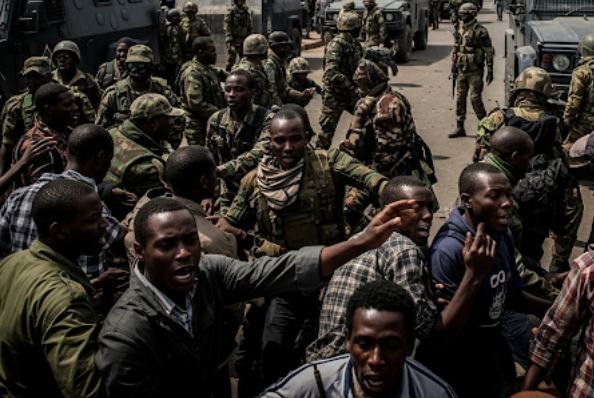
East African regimes are increasingly resorting to the same security playbook to repress opposition leaders and dissenting voices through state-sanctioned abuse.
Authorities have been implicated in unlawful detentions, sham prosecutions and, in extreme cases, assassination of opposition supporters, activists and civilians.
The ordeal currently facing Tanzania’s opposition leader Tundu Lissu mirrors long-standing tactics also deployed in Uganda and Kenya.
In Uganda, for instance, Edward Sebuufu, a bodyguard to opposition leader Bobi Wine, was forcibly disappeared this year, later resurfacing with signs of torture, electrocution and severe beatings.
Shockingly, General Muhoozi Kainerugaba, President Yoweri Museveni’s son and army chief, openly admitted responsibility, even boasting about shaving and planning to castrate Sebuufu.
In November 2024, Kizza Besigye, another major Ugandan opposition figure, was abducted in Nairobi and taken to military custody in Uganda, where he now faces a treason charge that carries the death penalty. His trial has been widely condemned as a farce.
A disturbing pattern emerges when you look back four years to the death of Daniel Apedel, a 21-year-old supporter of Uganda’s National Unity Platform. Wine leads NUP. Apedel, who had reported being followed and threatened after rejecting government offers, was found dead with signs of torture. His death is one among many targeting NUP supporters under constant surveillance.
Tanzania shows a similar trend. This month, Chadema activist Mdude Nyangali Mpauka was kidnapped, and his fate remains unknown. Since 2016, he has faced repeated arrests, torture and imprisonment.
In 2021, Freeman Mbowe of Chadema faced terrorism charges and endured torture over seven months in detention.
Now, Lissu, Chadema’s top figure, is also facing treason charges that could lead to a death sentence, in a trial that, like Besigye’s, bears all the signs of being politically motivated.
These politically charged arrests and abuses typically intensify around election periods.
Uganda’s next election, scheduled for January 2026, will see Museveni attempt to extend his near 40-year rule. His regime has escalated its crackdown on opposition figures such as Besigye and Wine's supporters, aiming to weaken resistance ahead of the polls.
Meanwhile, in Tanzania, the ruling CCM party, led by President Samia Suluhu, has held power since 1977 and plans to field her for the October 2025 election.
The electoral commission, under government influence, disqualified Chadema from participating on procedural grounds, claiming the party failed to sign a code of conduct, despite Chadema’s calls for electoral reform.
You can see that Suluhu appears to be following Museveni’s playbook by denying the opposition a fair contest, which will lead to a fair, transparent and credible election that respects the people's sovereignty.
This broader context explains why Tanzanian and Ugandan regimes are wary of Kenyan activists who travel to observe and expose political repression in neighbouring countries. They fear such solidarity could awaken local populations to resist authoritarianism and push for democratic change.
Real transformation would mean electing leaders who uphold constitutionalism, the rule of law and human rights.
For this reason, Kenyan citizens must continue demanding justice across the region, including accountability for those who tortured Boniface Mwangi and those responsible for the brutalisation and rape of Agather Atuhaire.
Like Willy Mutunga, Hanifa Adan, Martha Karua and Hussein Khalid, who were all deported for seeking justice for Lissu, these activists represent a growing movement that authoritarian leaders cannot silence.
Programme Manager for Inclusion and Political Justice at the Kenya Human Rights Commission









